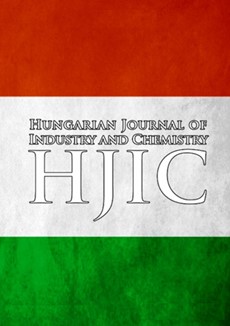Non-equilibrium Model and Experimental Validation for Reactive Distillation
Abstract
Firstly, a non-equilibrium model is implemented in order to simulate non-ideal multi-component reactive separation processes. This model is characterised by mass and energy transfer description and is completed up by considering hydrodynamics using the film theory model. The Maxwell Stefan approach is used for the description of mass transfer without restrictive hypotheses. Moreover, there are no restrictive hypotheses about the type and localisation of the chemical reactions. Secondly, the numerical analysis of this model ends in setting up a sure and stable strategy, especially to the differentiation index and the initialisation coherence. Thirdly, an experimental apparatus is set up in order to validate the numerical results. It represents a section of a packing distillation column fed by two fully controlled flows. The experiments were performed for the homogeneously catalysed etherification of acid acetic and methanol to produce methyl acetate and water. Several runs have been realised by varying the flow rates and compositions of the feeds, as well as the concentration of the catalyst. For each one, the simulation results are in good agreement with the vapour composition and the liquid temperature profile, without any parameter adjustments. In addition, the need of taking into account the reaction contribution in the diffusional layers is clearly shown.Downloads
Published
2003-09-01
Issue
Section
Articles
How to Cite
Non-equilibrium Model and Experimental Validation for Reactive Distillation. (2003). Hungarian Journal of Industry and Chemistry, 31(1). https://hjic.mk.uni-pannon.hu/index.php/hjic/article/view/56




